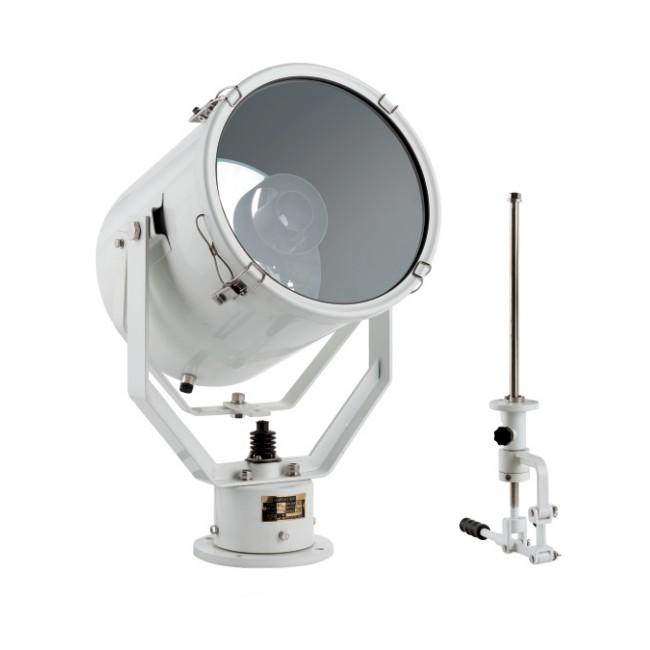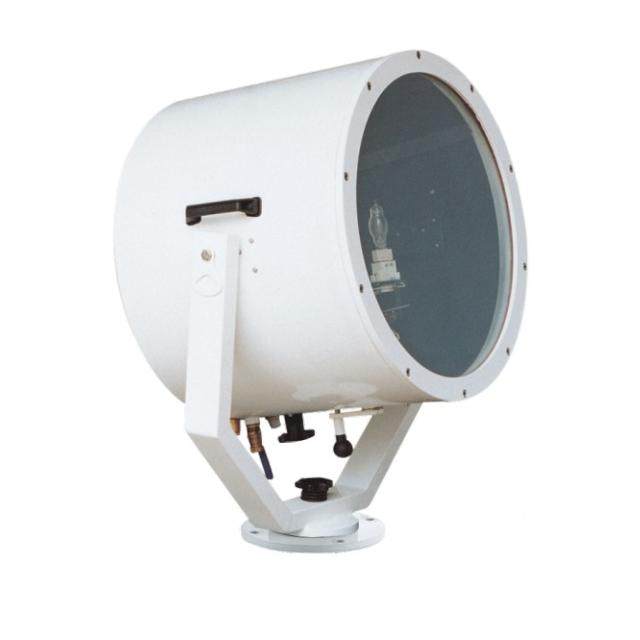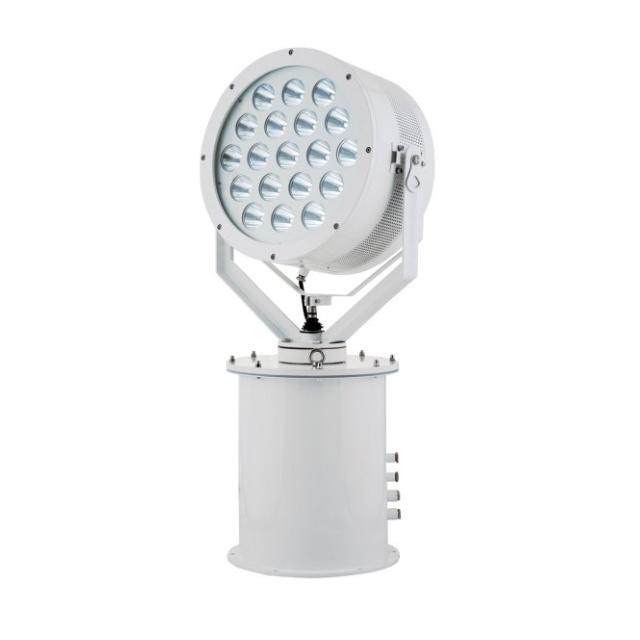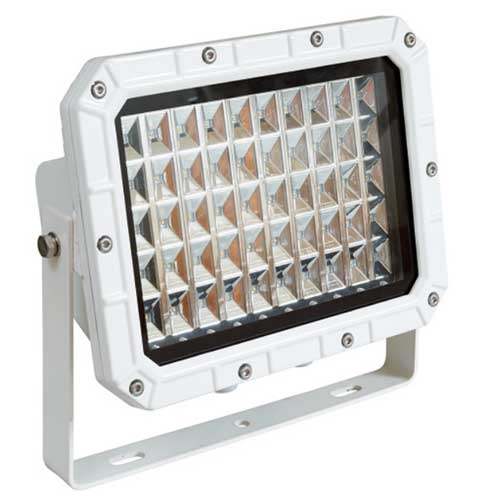The Critical Role of Marine Searchlights in Navigation Safety
Navigational aids and safety equipment play a vital role in ensuring smooth maritime activities and safe voyages. Among these tools, marine searchlights stand out as crucial assets, enhancing visibility and serving various functions in marine operations. In this article, we’ll explore the significance, common types, and technological advancements of marine searchlights.

Why Marine Searchlights are Important
Marine searchlights hold significant importance across a range of maritime operations due to their versatility and their pivotal role in enhancing visibility, ensuring safety, and facilitating a multitude of tasks at sea.
1. Navigation and Safety
Guiding Through Hazardous Waters: In conditions of reduced visibility, such as nighttime or during adverse weather conditions like fog or heavy rain, marine searchlights prove indispensable for guiding vessels safely through treacherous waters. They enhance visibility, enabling captains and navigators to make informed decisions and avoid potential obstacles such as rocks, reefs, and other vessels.
2. Search and Rescue Operations
Locating Distressed Vessels: During search and rescue missions, especially in emergencies like distress signals or accidents at sea, marine searchlights are invaluable. Their powerful beams can cover significant distances, aiding rescuers in locating distressed vessels or individuals in the water. This capability greatly enhances the chances of successful rescue operations, potentially saving lives.
3. Security and Surveillance
Monitoring Maritime Security: Maritime security relies heavily on searchlights for surveillance purposes. These lights are used to monitor waters around vessels, ports, and offshore installations. By illuminating the area, they help deter and detect unauthorized activities, ensuring the safety and security of maritime assets.
4. Docking and Berthing
Precision in Maneuvering: When it comes to docking or berthing a vessel, precision is paramount to avoid collisions and damage to either the vessel or the berth. Marine searchlights assist in these operations by illuminating the dock or berth, providing a clear view for the crew. This heightened visibility facilitates the assessment of distances, angles, and alignment, resulting in safe and efficient maneuvering.
5. Wildlife Observation
Studying Marine Life: Researchers, marine biologists, and wildlife enthusiasts utilize marine searchlights for wildlife observation purposes. These lights are instrumental in studying marine life, including fish behavior, marine mammals, and seabirds. They enable researchers to conduct observations both above and below the water’s surface, contributing to scientific knowledge and conservation efforts.
6. Recreational and Commercial Boating
Enhancing Safety and Enjoyment: In recreational boating, marine searchlights enhance safety by improving visibility during nighttime trips. Commercial vessels, such as fishing boats and ferries, also benefit from searchlights, ensuring the safety of passengers and crew while optimizing the efficiency of their operations.
7. Emergency Signaling
Distress Signaling: In emergency situations at sea, searchlights can be used for distress signaling. The powerful beams are highly visible and can attract the attention of nearby vessels or rescue teams, signaling the need for immediate assistance.

What are Common Used Type of Marine Searchlights
Marine searchlights come in various types, each designed to serve specific purposes and meet different requirements in maritime operations.
| Type of Marine Searchlight | Applications | Advantages | Limits |
| Incandescent Searchlights | General illumination on vessels, signaling. | Simple design, cost-effective. | Limited light output, shorter lifespan, higher energy consumption. |
| HID (High-Intensity Discharge) Searchlights | Long-range illumination, navigation aid. | Higher light output, longer lifespan. | Initial cost, warm-up time, power consumption. |
| LED Searchlights | Energy-efficient, durable, various color options. | High energy efficiency, long lifespan, instant operation. | Initial cost, potential for electronic component failures. |
| Halogen Searchlights | General illumination, smaller vessels. | Bright light output, relatively low cost. | Higher power consumption compared to LEDs. |
| Remote-Controlled Searchlights | Navigation, spotlighting specific areas. | Convenient control, flexibility in use. | Dependency on electronic components, potential for remote signal interference. |
| Fixed Mount Searchlights | Navigation, general illumination. | Simplified design, stable positioning. | Limited flexibility in directing light. |
| Handheld Searchlights | Emergency signaling, rescue operations. | Portability, versatile use. | Limited range and brightness compared to mounted options. |
| Infrared (IR) Searchlights | Surveillance, covert operations. | Invisible to the naked eye, suitable for night vision. | Limited use in visible light applications. |

What are the Technological Advancements for Marine Searchlights
Recent advancements in marine searchlights continue to enhance their capabilities and functionality:
1. LED Technology
LEDs have become the preferred choice for marine searchlights due to their high efficiency, low power consumption, and long life. They provide exceptionally bright and focused beams while minimizing maintenance requirements.

2. Integrated Systems
Some marine searchlights are now part of integrated vessel control systems, allowing seamless coordination with other navigation and safety equipment, such as radar and GPS.
3. Remote Monitoring
Remote monitoring and control capabilities have improved, enabling operators to manage searchlights from onshore locations, enhancing efficiency and reducing crew workload.
4. Environmental Considerations
Modern searchlights are designed with a focus on environmental sustainability, minimizing light pollution and energy consumption to protect marine ecosystems and meet regulatory requirements.
Conclusion
Marine searchlights are indispensable tools in maritime operations, contributing to navigation safety, search and rescue missions, security, and environmental conservation. With ongoing technological advancements, the marine searchlight will continue to evolve, promising even greater efficiency, reliability, and functionality in the future, ensuring the safety and success of maritime endeavors.

